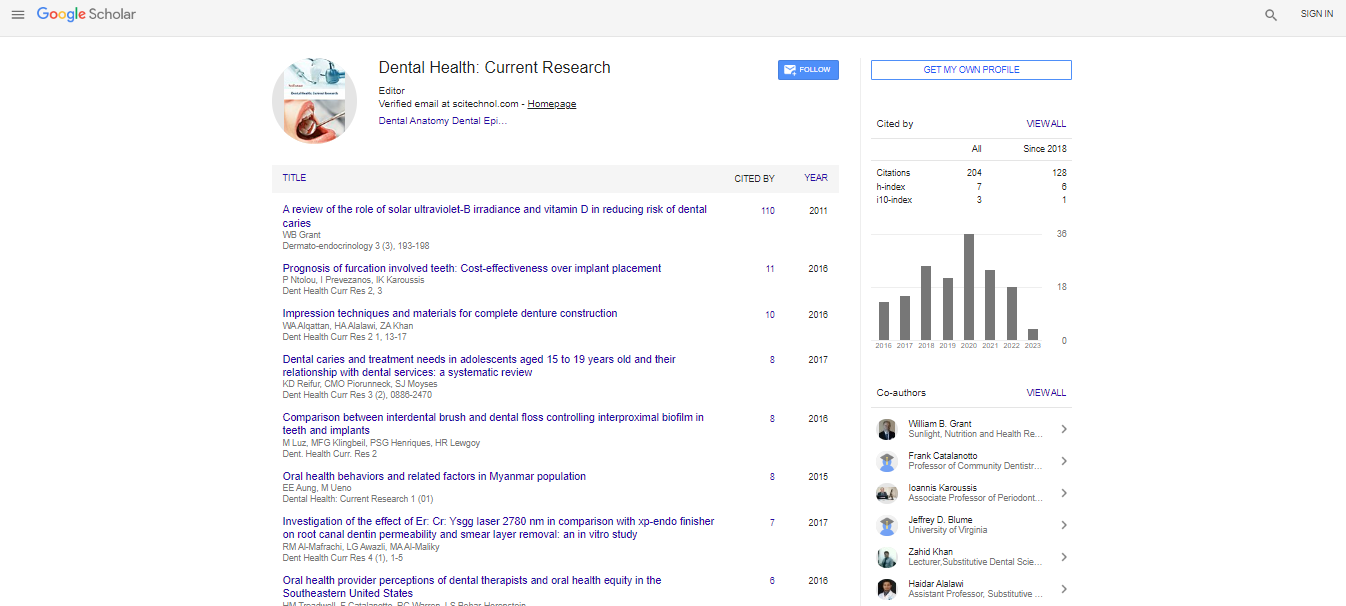Oral health in Nepal challenges
Pratistha Sharma
Kathmadu University, Nepal
: Dent Health Curr Res
Abstract
Oral disease shares common risk factors with the four leading chronic diseases: cardiovascular diseases; cancer; chronic respiratory diseases; and diabetes. Also, it shares risk factors with unhealthy diets, tobacco use, and alcohol use. Poor oral hygiene is also a risk factor for disease. Dental caries is the most prevalent oral disease in several Asian and Latin American countries. Globally most children show signs of gingivitis and among adults, gingivitis, the initial stage of periodontal disease, is prevalent. It is said that children with poor oral health are 12 times more likely to have restricted daily activity then those who do not. Due to poor oral health, especially in children, gingivitis may lead to necrotizing ulcerative gingivitis (NUG) and cancorum oris (noma). These conditions are very painful. More than 50 million school hours are lost annually due to oral health problems, which affect children’s’ school performance and success in later life. The main purpose of dental hygiene regimens is to prevent plaque biofilm formation. Bacterial plaque amassed on teeth as a result of poor dental hygiene is the causative factor of a majority of major oral and dental problems. Poor dental hygiene allows the accumulation of acid producing bacteria on the surface of the teeth. The acid demineralizes the tooth enamel causing tooth decay (cavities). Dental plaque can also invade and infect the gingival tissue causing periodontal diseases. In both dental decay and periodontal diseases, the final effect of poor dental hygiene can be the loss of one or more teeth. One shouldn’t wait until a tooth is lost to understand the importance of oral hygiene and preventive care. Oral health is a worldwide unrealized problem and is most common in developing countries. Poor oral health and untreated oral diseases and conditions can have a significant impact on quality of life. In developing countries like Nepal, oral diseases are the most common problems due to lack of education and poverty. The most common dental problem of the Nepalese is dental decay and periodontal diseases. By maintaining good oral hygiene practices, various dental problems can be kept under control and uplift the health status of the Nepalese people. For this, oral health education and awareness plays an important role, especially for the school children of private as well as government programs. Thus, such education is essential for behavior change, improving health and quality of life.
Biography
E-mail: pratisthasharma@yahoo.com
 Spanish
Spanish  Chinese
Chinese  Russian
Russian  German
German  French
French  Japanese
Japanese  Portuguese
Portuguese  Hindi
Hindi 